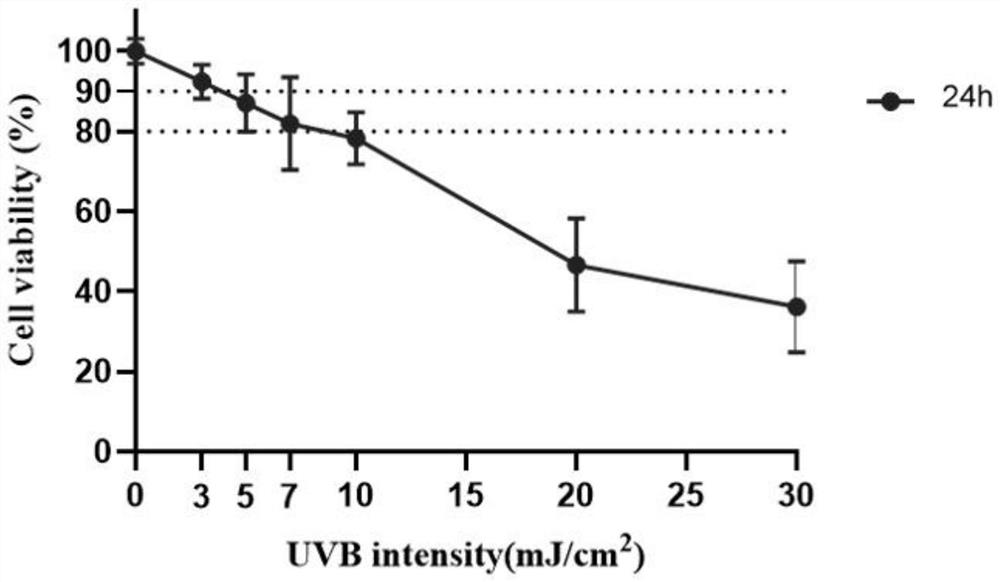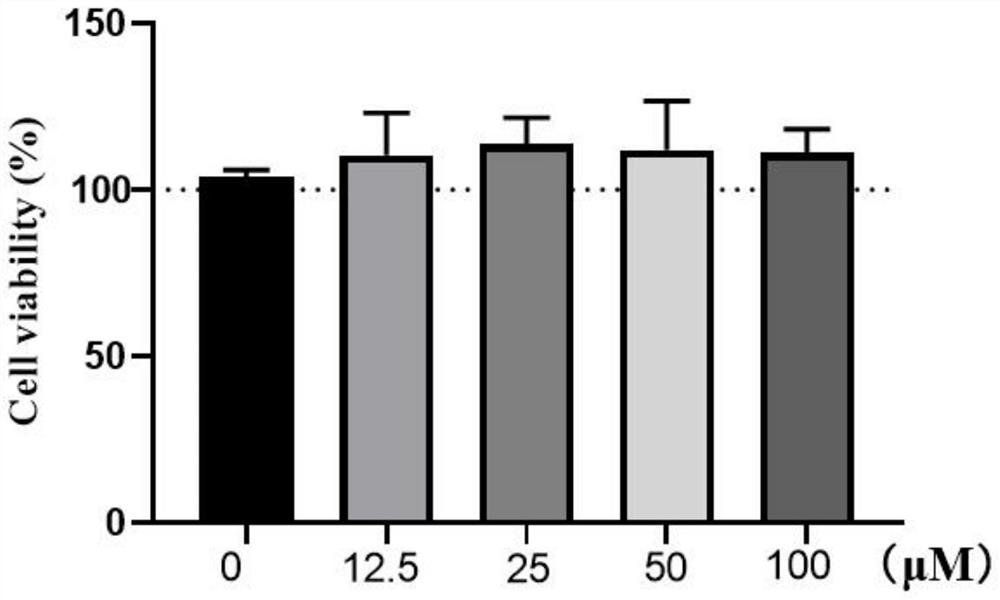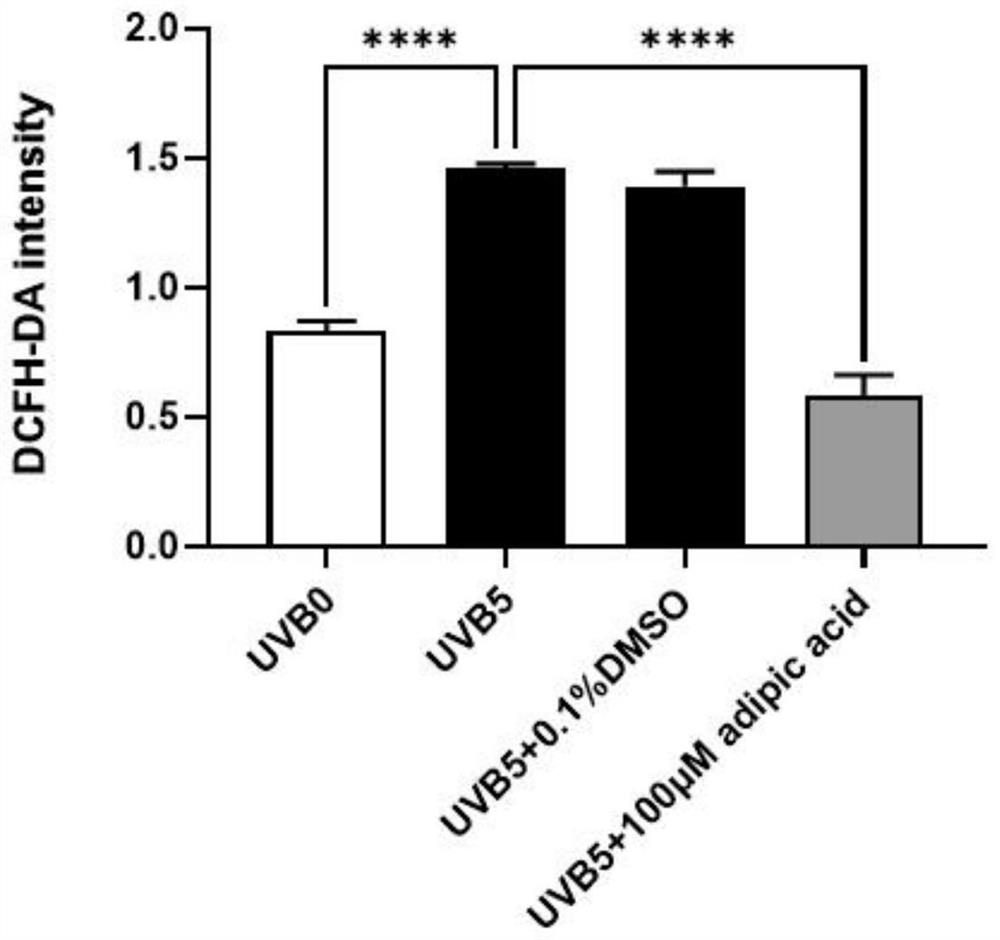Application of adipic acid in preparation of product for resisting skin light injury
A technology of adipic acid and photodamage, which is applied in the field of biomedicine to achieve the effect of improving the formation of skin wrinkles
- Summary
- Abstract
- Description
- Claims
- Application Information
AI Technical Summary
Problems solved by technology
Method used
Image
Examples
Embodiment 1
[0036] Induction of photoaging damage in HaCaT cells
[0037] HaCaT cells were seeded in 96-well plates, and when they grew to a density of 50%, 0, 3, 5, 7, 10, 20, 30 mJ / cm 2 After continuing to culture for 24 hours, use Beyontian CCK8 kit to detect the cell survival rate under different ultraviolet radiation doses.
[0038] figure 1 It was shown that with the increase of UVB radiation dose, the survival rate of cells decreased gradually. The dose of UVB radiation should be above 80% of the cell survival rate, so choose the dose of UVB as 5mJ / cm 2 for subsequent experiments.
Embodiment 2
[0040] Toxicity of adipic acid to HaCaT cells
[0041] HaCaT cells were seeded in 96-well plates, and when they grew to a density of 50%, they were given adipic acid solutions (with DMSO as the solvent) at a concentration of 0, 12.5, 25, 50, and 100 μM. CCK8 kit to detect cell viability under different substance doses.
[0042] figure 2 It was shown that adipic acid had no toxicity to HaCaT cells within the experimental concentration range. Therefore, the maximum non-toxic concentration within the experimental range of 100 μM was selected for subsequent experiments.
Embodiment 3
[0044] Improvement effect on UVB-induced oxidative damage of HaCaT cells
[0045] Reactive oxygen species (ROS), lipid peroxidation product malondialdehyde (MDA), antioxidant enzyme superoxide dismutase (SOD) were used as indicators for research.
[0046] 1. Reactive oxygen species (ROS)
[0047] HaCaT cells were seeded in a 96-well plate, and when they grew to a density of 50%, they were treated with UVB, UVB+adipic acid at a concentration of 100 μM, and UVB+0.1% DMSO, while the cells in the blank control group were not treated (marked as UVB0) ; After each group was cultured for 24 hours, the improvement effect of adipic acid on UVB-induced ROS accumulation was detected with Beyontian ROS detection kit.
[0048]The intracellular ROS level of HaCaT cells was characterized by the fluorescence intensity of DCFH-DA probe. image 3 It was shown that after HaCaT cells were irradiated with UVB, the level of intracellular ROS increased significantly ( **** P**** P<0.0001), the so...
PUM
| Property | Measurement | Unit |
|---|---|---|
| wavelength | aaaaa | aaaaa |
Abstract
Description
Claims
Application Information
 Login to View More
Login to View More - R&D
- Intellectual Property
- Life Sciences
- Materials
- Tech Scout
- Unparalleled Data Quality
- Higher Quality Content
- 60% Fewer Hallucinations
Browse by: Latest US Patents, China's latest patents, Technical Efficacy Thesaurus, Application Domain, Technology Topic, Popular Technical Reports.
© 2025 PatSnap. All rights reserved.Legal|Privacy policy|Modern Slavery Act Transparency Statement|Sitemap|About US| Contact US: help@patsnap.com



